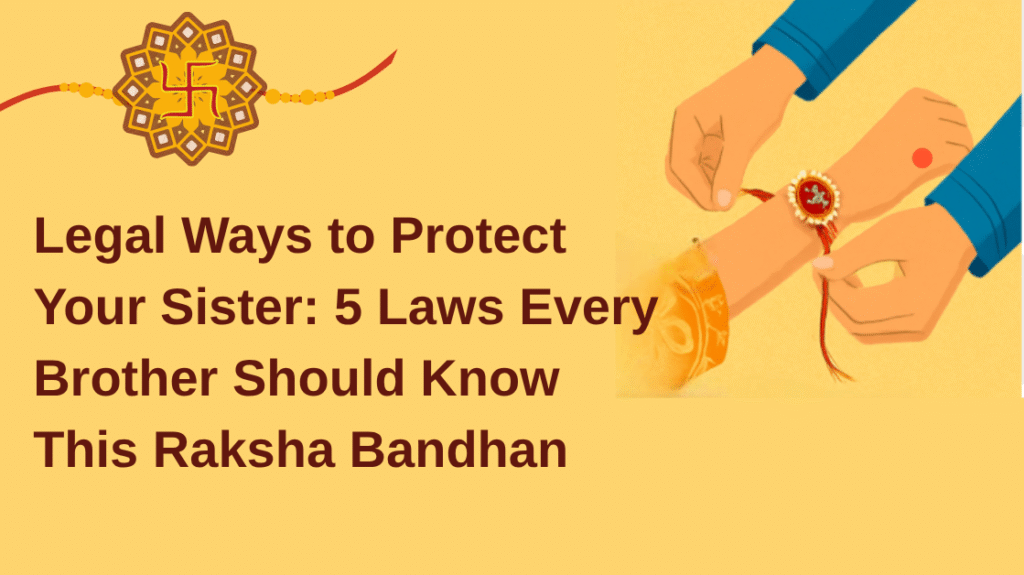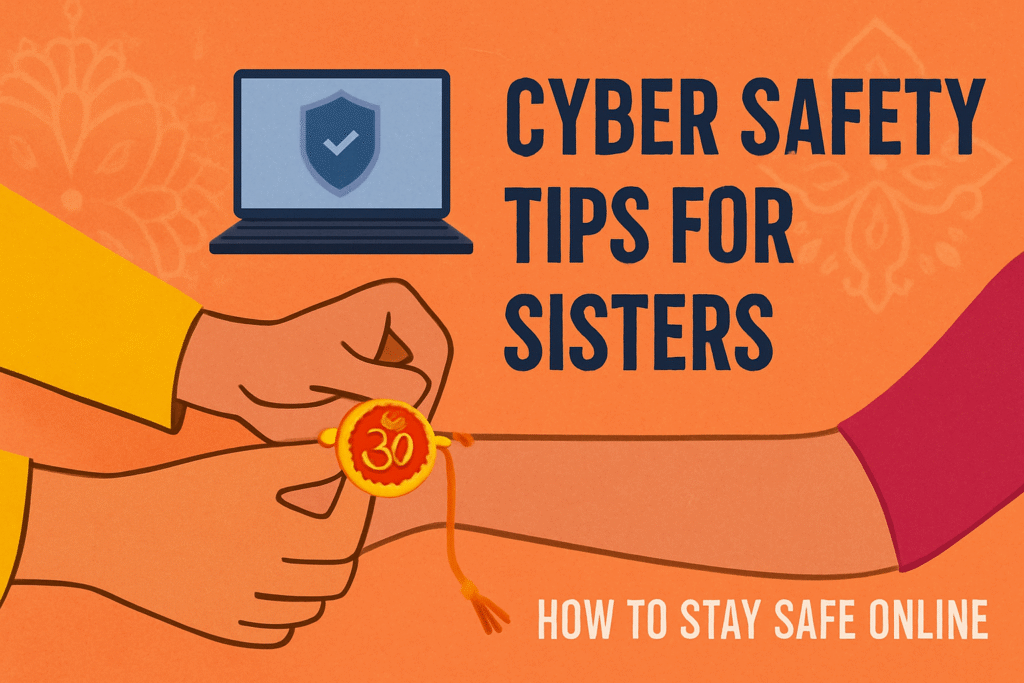Raksha Bandhan is more than a thread — it’s a promise of protection, care, and unconditional love.
In today’s world, protecting your sister goes beyond physical safety. As a brother, knowing her legal rights can be the most valuable shield you give her.
Here are 5 important Indian laws every brother should know to safeguard his sister’s dignity, safety, and future.
1. Protection Against Domestic Violence
Law: Protection of Women from Domestic Violence Act, 2005 (PWDVA)
If your sister faces any kind of abuse — physical, verbal, emotional, sexual, or economic — even within her marital home, she has the legal right to protection orders, residence rights, and financial support.
As a brother, you can:
- Help her file a complaint with the Protection Officer or police station
- Assist in arranging legal aid
- Support her in court proceedings
📌 Tip: Domestic violence includes emotional abuse, not just physical harm.
2. Cyber Safety & Online Harassment Laws
Law: Information Technology Act, 2000 & Indian Penal Code Sections 354D, 509
If your sister faces:
- Cyberstalking
- Non-consensual sharing of images
- Online abuse or trolling
She can:
- File an FIR under Section 66E, 67 IT Act for violation of privacy
- Report the matter to the Cyber Crime Portal (cybercrime.gov.in)
📌 Tip: Keep screenshots and chat logs as evidence before reporting.
3. Protection Against Sexual Harassment at Workplace
Law: POSH Act, 2013
If your sister is employed and experiences:
- Unwelcome advances
- Lewd remarks
- Workplace discrimination due to gender
She can file a complaint with the Internal Complaints Committee (ICC) in her company, or the Local Complaints Committee if her workplace has fewer than 10 employees.
📌 Tip: A complaint must be filed within 3 months of the incident.
4. Maintenance and Financial Support
Law: Section 125, Code of Criminal Procedure (CrPC)
If your sister is unable to maintain herself and is unmarried, separated, or divorced, she can seek monthly maintenance from:
- Husband (if married & separated)
- Parents (if unmarried)
- Son (in case she is a widow & dependent)
As a brother, knowing this law allows you to guide her to legal remedies instead of financial helplessness.
5. Right to Parental Property
Law: Hindu Succession (Amendment) Act, 2005
If your family follows Hindu law, your sister has equal rights in parental property, whether she is married or unmarried.
She can demand her share legally, just like a brother.
📌 Tip: This right applies to ancestral property and is not affected by her marital status.
Also Read: Legal Rights of Daughters/Sisters in Ancestral Property
Final Words
This Raksha Bandhan, don’t just tie a thread — tie a bond of legal protection.
Awareness is the strongest weapon you can gift your sister, ensuring her dignity, safety, and independence for life.




Pingback: Raksha Bandhan 2025: Date, History, Rituals, Quotes & Legal Insights